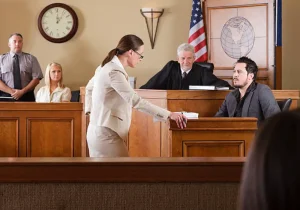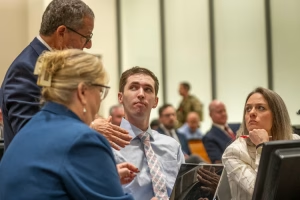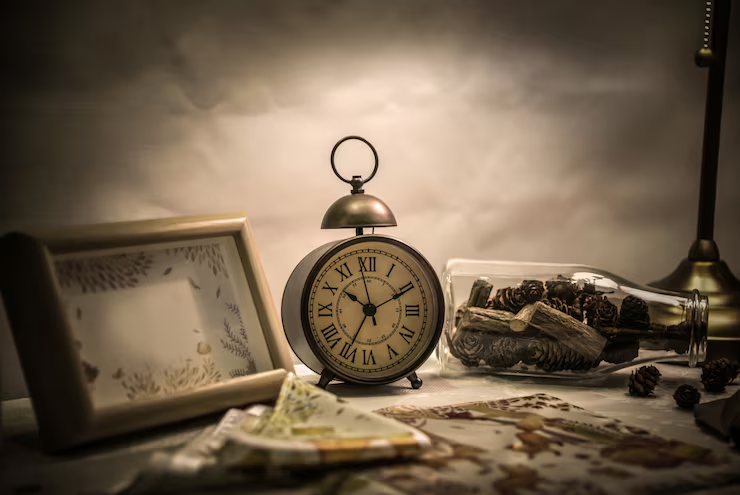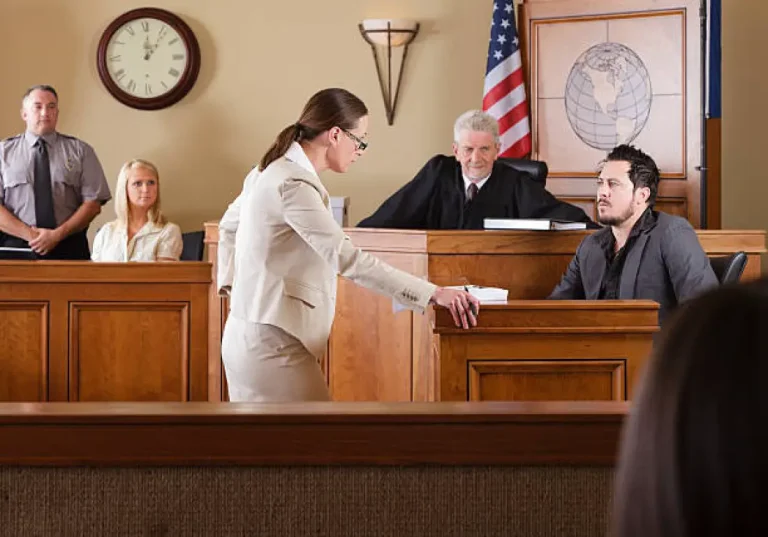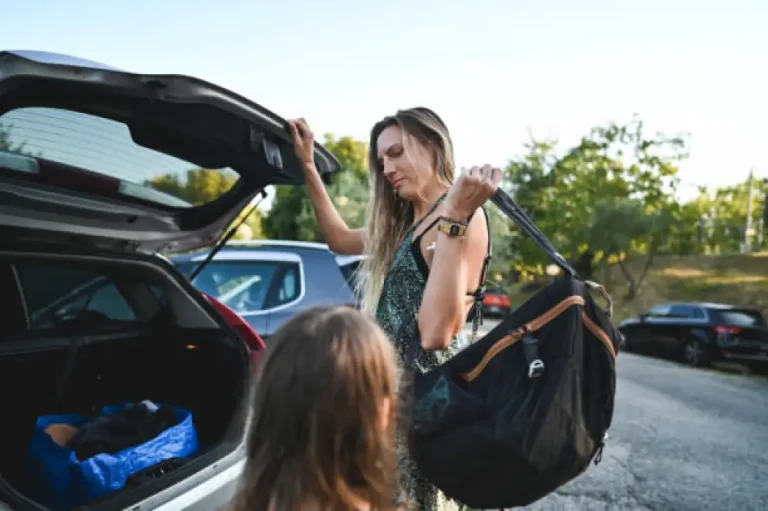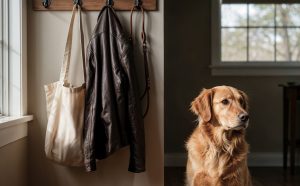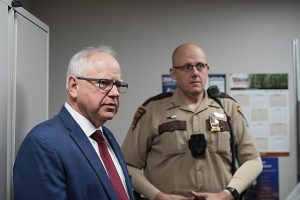The Weight of Time
My name is Emma, and this is the story of how five broken pocket watches taught me that sometimes the most valuable things in life come disguised as worthless junk.
It all started with a phone call that changed everything. I was sitting in my cramped studio apartment in Chicago, grading papers from my high school English students, when my phone rang at 11:30 PM. The caller ID showed my older brother Marcus’s name, which was unusual. Marcus and I rarely talked unless it was absolutely necessary, and he’d never called me this late.
“Emma?” His voice sounded strange, shaky. “You need to come home. It’s about Grandpa Joe.”
My heart sank. Grandpa Joe was eighty-seven years old and had been living alone in the same house he’d built with his own hands sixty years ago. He was stubborn, independent, and had refused our repeated offers to move to assisted living. He was also the only family member who’d ever really understood me.
“What happened?” I asked, already reaching for my car keys.
“He had a stroke. He’s in the hospital, but Emma… the doctors don’t think he has long. He’s been asking for both of us.”
I drove the four hours back to my hometown of Millbrook that night, my mind racing with memories of the man who’d raised Marcus and me after our parents died in a car accident when I was twelve. Grandpa Joe had been a watchmaker his entire life, running a small shop on Main Street until he retired ten years ago. His house was filled with the sounds of ticking clocks and the smell of metal polish and old leather.
When I arrived at the hospital, Marcus was already there, pacing in the hallway outside Grandpa’s room. At thirty-two, Marcus was six years older than me, taller, broader, with the kind of confidence that came from always being the golden child. He worked in real estate in the city, drove a BMW, and wore expensive suits. He’d always been the practical one, the successful one, while I was the dreamer who became a teacher and barely made ends meet.
“How is he?” I asked.
Marcus’s expression was grim. “Stable for now, but weak. He’s been drifting in and out of consciousness. When he’s awake, he keeps talking about his workshop, about things he needs to finish.”
I pushed open the door to Grandpa’s room and felt my heart break. The strong, vibrant man who’d taught me to change a tire and balance a checkbook looked so small in the hospital bed. His weathered hands, which had fixed countless watches over the decades, lay still on the white sheets.
“Grandpa?” I whispered, taking his hand.
His eyes fluttered open, and when he saw me, he smiled. “Emma, sweetheart. You came.”
“Of course I came. How are you feeling?”
“Like I’ve been run over by a truck,” he said with a weak chuckle. “But I’m glad you’re both here. I need to tell you something important.”
Marcus moved closer to the bed. “What is it, Grandpa?”
“In my workshop, there’s a wooden box on the top shelf behind my desk. Inside are some old pocket watches that belonged to my father and grandfather. They’re not much to look at anymore, but they’re important. I want you to have them, Emma.”
Marcus frowned. “What about the house? Your tools? The rest of your things?”
Grandpa Joe looked at Marcus with tired eyes. “You’ll get the house and everything else, son. You’ve got a good head for business, and you’ll know what to do with it all. But Emma… Emma understands the value of time.”
I squeezed his hand gently. “I’ll take care of them, Grandpa. I promise.”
Three days later, Grandpa Joe passed away peacefully in his sleep. The funeral was small – just Marcus, me, and a handful of elderly neighbors who remembered when Grandpa’s watch shop was the heart of Main Street. As we stood by his grave, I thought about all the times he’d sat with me at his workbench, teaching me about gears and springs, telling me stories about the watches he’d repaired and the people who’d owned them.
“Every timepiece has a story,” he used to say. “The trick is learning how to listen.”
A week after the funeral, Marcus and I met at Grandpa’s house to go through his belongings. The house felt hollow without the constant ticking of clocks and the sound of Grandpa humming while he worked. Marcus was all business, making lists of what could be sold and what should be donated.
“The house is worth about $200,000,” he said, checking something on his phone. “It needs work, but the location is good. I’m thinking we should put it on the market as soon as we clear everything out.”
I nodded, feeling numb. This house had been my safe haven after our parents died, the place where I’d learned that family wasn’t just about blood but about the people who showed up when you needed them most.
We made our way to Grandpa’s workshop, a converted garage filled with the tools of his trade. Workbenches lined the walls, covered with tiny screwdrivers, jeweler’s loupes, and containers of screws and springs sorted by size. The air still smelled like machine oil and the special cleaning solution he used on watch faces.
I found the wooden box exactly where Grandpa had said it would be. It was old, made of dark wood worn smooth by decades of handling. Inside, nestled in faded velvet, were five pocket watches. They looked terrible – tarnished, some with cracked faces, all of them clearly broken. None of them were ticking.
Marcus looked over my shoulder and snorted. “Those old things? They look like junk. I can’t believe Grandpa wanted you to have those instead of something valuable.”
I lifted one of the watches carefully. It was heavier than I expected, with intricate engravings on the case that were barely visible under layers of tarnish. “They meant something to him.”
“Everything meant something to him,” Marcus said dismissively. “He kept every broken watch that ever came into his shop. That doesn’t make them worth anything.”
Over the next few days, Marcus threw himself into settling Grandpa’s estate with ruthless efficiency. He hired an appraiser, contacted real estate agents, and arranged for an estate sale company to handle everything in the house. I helped where I could, but mostly I found myself sitting in the workshop, holding the pocket watches and thinking about Grandpa’s words.
The reading of the will was exactly what we expected. Marcus inherited the house, the workshop, all of Grandpa’s tools, and his small savings account – about $45,000 total. I received the five pocket watches and a letter that Grandpa had written before he died.
“Congratulations on your junk collection,” Marcus said as we left the lawyer’s office. “I hope those rusty old watches keep you warm at night.”
I didn’t respond. I was too busy reading Grandpa’s letter.
My dearest Emma,
If you’re reading this, then I’m gone, and you’re probably wondering why I left you those old watches instead of something more practical. Marcus will get the house and money because he needs those things, and he’ll use them well. But you, sweetheart, you need something different.
Those watches belonged to your great-grandfather and great-great-grandfather. They’re not just timepieces – they’re our family’s history. Each one has a story, and each one holds something precious. Look closely, and you’ll understand.
Remember what I always told you: the most valuable things in life are often hidden in plain sight.
All my love, Grandpa Joe
Back in Chicago, I put the wooden box on my kitchen table and spent hours examining each watch. They were all different – different sizes, different styles, different levels of damage. One had a hunting case with elaborate engravings of birds and flowers. Another was simpler, with a plain white face and Roman numerals. A third had a chain so tarnished it looked black.
I tried to wind them, but none of them worked. The mechanisms were seized with age and neglect. I was beginning to think Marcus was right – they were just old junk that Grandpa had been too sentimental to throw away.
But then I remembered something. When I was sixteen, I’d found a music box in Grandpa’s attic. It looked broken and worthless, but when I brought it to him, he’d shown me a hidden compartment that contained my grandmother’s engagement ring. “Sometimes,” he’d said, “the most precious things are hidden where no one thinks to look.”
I picked up the hunting case watch and examined it more carefully. The back was intricately engraved with a scene of hunters and dogs, but one section seemed slightly different from the rest. I pressed on it gently, and to my amazement, a tiny panel slid open.
Inside was a folded piece of paper, yellow with age. I unfolded it carefully and found myself looking at a birth certificate – my great-grandfather’s birth certificate, dated 1892. But what made my hands shake was the name on it: James McKinnon. Not James Miller, which was our family name.
I opened the second watch and found another hidden compartment. This one contained a small key and a piece of paper with an address in Boston. The third watch held a map, hand-drawn and showing the layout of what looked like a small town. The fourth contained photographs – tiny, faded images of people I didn’t recognize. The fifth watch was different; instead of papers, it held a small, perfectly preserved gemstone that caught the light like captured fire.
My heart was racing as I spread everything out on my kitchen table. This wasn’t just a collection of broken watches – it was a treasure map, a family mystery that Grandpa had been keeping for decades.
I spent the next three days researching online. The birth certificate led me to immigration records showing that James McKinnon had changed his name to James Miller when he arrived in America from Scotland in 1910. The address in Boston belonged to a bank that had been closed for fifty years, but city records showed that it had a safety deposit box rental service.
The map was more challenging to decode, but after hours of comparing it to historical maps online, I realized it showed the layout of a small town in Montana that had been abandoned during the Great Depression. According to my research, James McKinnon had owned property there before moving to Boston.
The photographs were the most intriguing. Using a magnifying glass, I could make out faces, clothing, and backgrounds that suggested they were taken in the early 1900s. One showed a man who looked remarkably like Grandpa Joe standing in front of what appeared to be a mine entrance.
But it was the gemstone that made everything click into place. I took it to a jeweler in downtown Chicago, claiming it was from an old piece of family jewelry that needed to be appraised for insurance purposes.
The jeweler’s eyes widened when he examined it under his loupe. “This is a very high-quality sapphire,” he said. “Probably three carats, excellent clarity. Where did you say you got this?”
“It’s been in my family for generations,” I said truthfully.
“Well, it’s worth at least $15,000, possibly more depending on the provenance.”
I walked out of the jewelry store in a daze. One tiny stone hidden in a broken watch was worth more than I made in four months of teaching. But I had a feeling this was just the beginning.
Using the key from the second watch, I traveled to Boston and discovered that the old bank building now housed a law firm. After explaining my situation to the senior partner, I learned that the bank’s safety deposit box records had been transferred to a storage facility when the bank closed.
It took two weeks and several hundred dollars in fees, but eventually I gained access to safety deposit box #247, which had been paid for in advance through a trust established by James McKinnon in 1924.
Inside the box were documents that told an incredible story. James McKinnon had been a successful gold prospector who’d struck it rich in Montana in the early 1900s. Instead of spending his fortune, he’d invested it carefully in stocks and bonds, establishing multiple trusts and accounts across the country. The abandoned town shown in the map wasn’t just where he’d lived – it was where he’d hidden the entrance to his most productive mine.
There were also letters, dozens of them, written by James to his descendants. He explained that he’d hidden clues about his fortune in the family watches, passing down the secret through generations with the understanding that only someone who truly valued family history would take the time to discover the truth.
The final document was a deed to the Montana property and a letter of credit to a bank in Helena, Montana, for an account that had been growing with interest for nearly a century.
When I finally made it to Montana, I felt like I was living in an adventure movie. The ghost town was exactly as shown in the map, though nature had reclaimed most of the buildings. With the help of a local guide and some mining equipment, we located the mine entrance hidden behind a rockfall.
Inside, we found not just gold ore, but carefully preserved documents showing the locations of other claims and investments James had made. More importantly, we found a letter addressed “To My Descendant Who Values Time Above Gold.”
If you’re reading this, the letter began, then you understand that the greatest treasures are not always the most obvious ones. I’ve spent my life learning that patience, persistence, and respect for family history are worth more than all the gold in these mountains.
The watches were my way of ensuring that my fortune would go to someone who understood its true value – not the money itself, but the responsibility that comes with it. Use this wealth wisely, and remember that time is the only currency that truly matters.
When all was said and done, James McKinnon’s hidden fortune – including the mine rights, the accumulated trust funds, and various investments – was worth just over $2.8 million.
I sat in my hotel room in Helena that night, staring at the bank documents that would change my life forever, and thought about calling Marcus. Part of me wanted to share this incredible discovery with him, to see the look on his face when he realized that the “worthless junk” he’d mocked was actually worth more than anything Grandpa had left him.
But then I remembered something else Grandpa used to say: “Revenge is a luxury that only small people can afford.”
Instead, I called a financial advisor and a lawyer. I set up a foundation to provide scholarships for students who wanted to study history, archaeology, and other fields that Marcus would probably consider impractical. I bought a house back in Millbrook, three blocks from where I grew up. And I opened a small museum in the building that used to house Grandpa’s watch shop, dedicated to preserving the history of our town and the stories of the families who built it.
Marcus found out about my good fortune six months later when the museum opened and the local newspaper ran a story about my “generous donation” to the historical society. He called me, his voice tight with anger and disbelief.
“You knew,” he said. “You knew those watches were valuable, and you didn’t tell me.”
“I hoped they might be meaningful,” I said honestly. “But I didn’t know about any of this until I started really looking at them.”
“We should split it,” he said. “Family inheritance should be shared equally.”
I thought about that for a moment. “You got what Grandpa thought you needed, Marcus. A house, tools, money to invest. I got what he thought I needed – a mystery that required patience and respect for family history to solve.”
“That’s not fair.”
“Isn’t it? You’ve spent your whole life telling me that my interests were worthless, that history and old things were a waste of time. You literally called these watches junk. If I’d tried to tell you they might be valuable, you would have laughed at me.”
There was a long silence on the other end of the line.
“Besides,” I continued, “Grandpa knew what he was doing. He gave each of us exactly what we were capable of handling.”
Marcus never spoke to me again after that conversation, which honestly was more of a relief than a loss. Some relationships aren’t worth preserving, even when they’re family.
The museum has been open for two years now, and it’s become a popular destination for tourists and school groups. The five pocket watches are displayed in a place of honor, along with the story of James McKinnon and his incredible foresight. Visitors love the idea that something so ordinary-looking could hold such extraordinary secrets.
I still teach, but now it’s at the local high school in Millbrook, and I use James McKinnon’s story as an example of how history isn’t just about dates and names – it’s about real people who made choices that affected their families for generations.
I also started a program where students can bring in family heirlooms and learn to research their provenance. You’d be amazed how many families have treasures hidden in their attics and basements, dismissed as worthless because they don’t look valuable to modern eyes.
Last month, a fifteen-year-old girl named Sarah brought in a quilt that her great-grandmother had made during the Depression. It looked like nothing special – faded fabric, simple stitching, missing pieces. But when we examined it closely, we discovered that the pattern wasn’t random. It was actually a map showing the locations of Underground Railroad safe houses in our county.
Sarah’s great-grandmother had been part of a network that helped enslaved people escape to freedom, and she’d hidden that information in a quilt pattern that looked like decorative geometry to casual observers. Sarah’s family had no idea they were preserving such an important piece of local history.
“How did you know to look so closely?” Sarah asked me after we’d confirmed the quilt’s historical significance.
I smiled and pointed to the display case holding Grandpa Joe’s watches. “Someone very wise once taught me that the most valuable things in life are often hidden in plain sight. You just have to know how to look.”
That evening, I sat in Grandpa’s old workshop, which I’d restored exactly as he’d left it. The sounds of ticking filled the air again – I’d started collecting and repairing vintage clocks and watches as a hobby. It seemed fitting, somehow, to continue the family tradition.
I picked up one of James McKinnon’s watches – the hunting case with the hidden compartment – and wound it carefully. Grandpa had taught me enough about watch repair to get the mechanisms working again. It ticked steadily in my palm, keeping perfect time after more than a century.
Marcus had been wrong about so many things, but especially about this: these watches weren’t junk. They were time machines, carrying stories and secrets across generations, waiting for someone patient enough to discover their true value.
Grandpa Joe had understood that I would be that someone. He’d known that while Marcus saw only the surface value of things, I would dig deeper, would ask questions, would respect the past enough to unlock its secrets.
The greatest inheritance wasn’t the money or the property or even the watches themselves. It was the lesson that the most precious things in life – love, patience, respect for family, understanding of history – can’t be bought or sold. They can only be passed down from one generation to the next, hidden in plain sight, waiting for the right person to recognize their worth.
Sometimes the most valuable gifts come disguised as worthless junk. You just have to know how to listen to the stories they’re trying to tell.

Emily Johnson is a critically acclaimed essayist and novelist known for her thought-provoking works centered on feminism, women’s rights, and modern relationships. Born and raised in Portland, Oregon, Emily grew up with a deep love of books, often spending her afternoons at her local library. She went on to study literature and gender studies at UCLA, where she became deeply involved in activism and began publishing essays in campus journals. Her debut essay collection, Voices Unbound, struck a chord with readers nationwide for its fearless exploration of gender dynamics, identity, and the challenges faced by women in contemporary society. Emily later transitioned into fiction, writing novels that balance compelling storytelling with social commentary. Her protagonists are often strong, multidimensional women navigating love, ambition, and the struggles of everyday life, making her a favorite among readers who crave authentic, relatable narratives. Critics praise her ability to merge personal intimacy with universal themes. Off the page, Emily is an advocate for women in publishing, leading workshops that encourage young female writers to embrace their voices. She lives in Seattle with her partner and two rescue cats, where she continues to write, teach, and inspire a new generation of storytellers.


